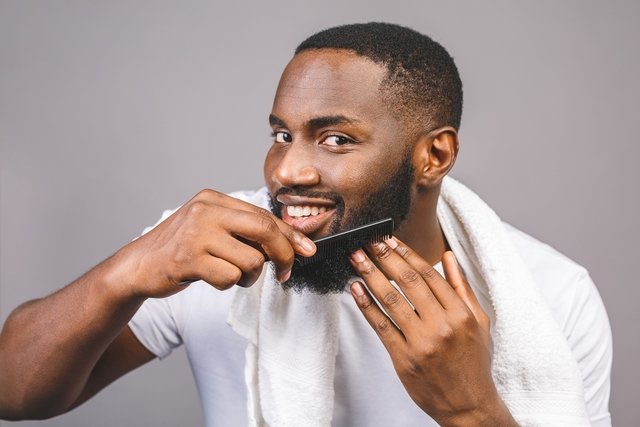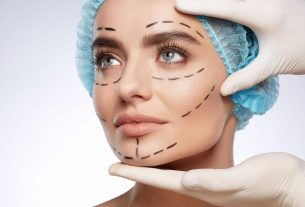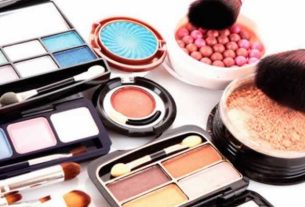Some natural tips to help your beard grow faster are exfoliating your face twice a week and massaging with eucalyptus oil, which stimulates blood circulation and facilitates hair growth.
Furthermore, eating foods rich in B vitamins, such as meat, eggs and cereals, also promotes beard growth, because this vitamin helps keep the skin healthy and strengthens the hair.
See the following video for more tips and tricks to help your beard grow faster:
1. Exfoliate your face twice a week
Exfoliating your face is essential to keep your skin clean and remove dead cells, facilitating the work of the follicles and promoting the growth of beard hair.
After exfoliation, it is recommended to moisturize your face at least once a day, to allow the skin to remain well hydrated and for hair to pass through the pores more easily. See some homemade exfoliants to use on your face.
2. Eat foods rich in vitamin B
Eating foods rich in B vitamins, such as meat, eggs, milk, legumes and dark green vegetables, helps with beard growth, because it keeps the skin healthy and strengthens the hair. See a list of foods rich in vitamin B.
Furthermore, foods rich in protein can also help with beard growth, and it is also recommended to eat more white meat, eggs, milk and cheese.
3. Exercise 5 times a week
One of the best ways to grow a beard is to exercise regularly, that is, at least 5 times a week. This is because physical exercise increases the production of testosterone, which is the main hormone responsible for hair growth.
Some physical exercises that can be done are calisthenics, weight training, running or swimming, for example, depending on each person’s goals.
4. Massage your face with eucalyptus
Massage is a great technique for increasing blood circulation, improving the transport of nutrients and vitamins. Thus, massaging the face helps provide the necessary nutrients to the follicles, stimulating the development of beard hair.
In addition, you can also use eucalyptus essential oil, as it has antibacterial and antimicrobial action, combating bacteria and fungi that can lead to irritation of the hair follicles. To do the massage correctly you must:
- Put a few drops of vegetable oil on your fingers;
- Apply to clean skin or beard;
- Make circular movements with your fingertips in the beard area;
- Wash the skin with warm water.
This massage should be done about twice a day, when waking up and before going to bed, for example.
5. Take biotin supplements
Biotin is a B complex vitamin that is essential for the health of the follicles that produce beard hair and, although it can be found in foods such as meat, milk and eggs, it is recommended to take supplements with at least 2.5 mg per day. , to stimulate beard growth. Learn more about biotin.
6. Sleep 7 to 8 hours a night
Sleep is very important for repairing skin cells and stimulating the functioning of follicles, which is why it is recommended to sleep between 7 and 8 hours a night. People who sleep less than this may have difficulty growing their beard. Check out some simple tips to improve your night’s sleep.
7. Do yoga or meditation
Doing relaxing activities such as yoga, meditation or reading books help reduce stress levels by controlling cortisol levels, a hormone that causes a decrease in testosterone production. See some simple techniques to relieve stress.
Bibliography
- FILETO, Marjory et al. Active ingredients and procedures in Androgenetic Alopecia. BWS Journal. vol.4. 1-13, 2021
- SU, Liang et al. Effect of partial and total sleep deprivation on serum testosterone in healthy males: a systematic review and meta-analysis. Sleep medicine. Vol.88. 267-273, 2021
- NATIONAL INSTITUTES OF HEALTH. How stress causes hair loss. Disponível em: <https://www.nih.gov/news-events/nih-research-matters/how-stress-causes-hair-loss>. Acesso em 02 mar 2023
- GEISLER, Stepahn et al. Salivary testosterone and cortisol concentrations after two different resistance training exercises.. The Journal of Sports Medicine and Physical Fitness. Vol.59. 6.ed; 1030-1035, 2019
- PATEL, T.S.; DALIA, Y. Pseudofolliculitis Beard. JAMA Dermatol. 158. 6; 708, 2022

Sign up for our newsletter and stay up to date with exclusive news
that can transform your routine!
Warning: Undefined array key "title" in /home/storelat/public_html/wp-content/plugins/link-whisper-premium/templates/frontend/related-posts.php on line 12
Warning: Undefined array key "title_tag" in /home/storelat/public_html/wp-content/plugins/link-whisper-premium/templates/frontend/related-posts.php on line 13





